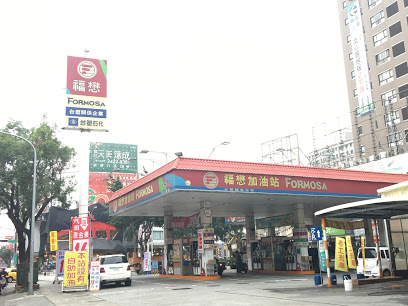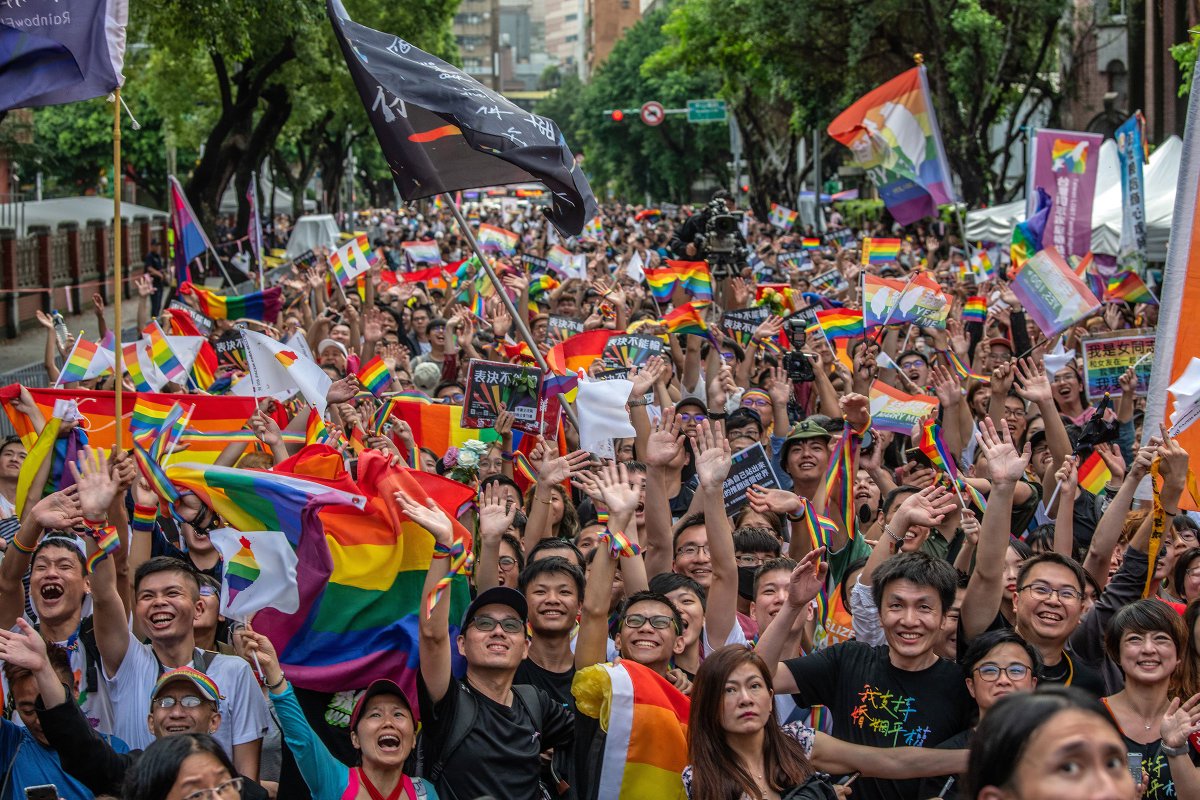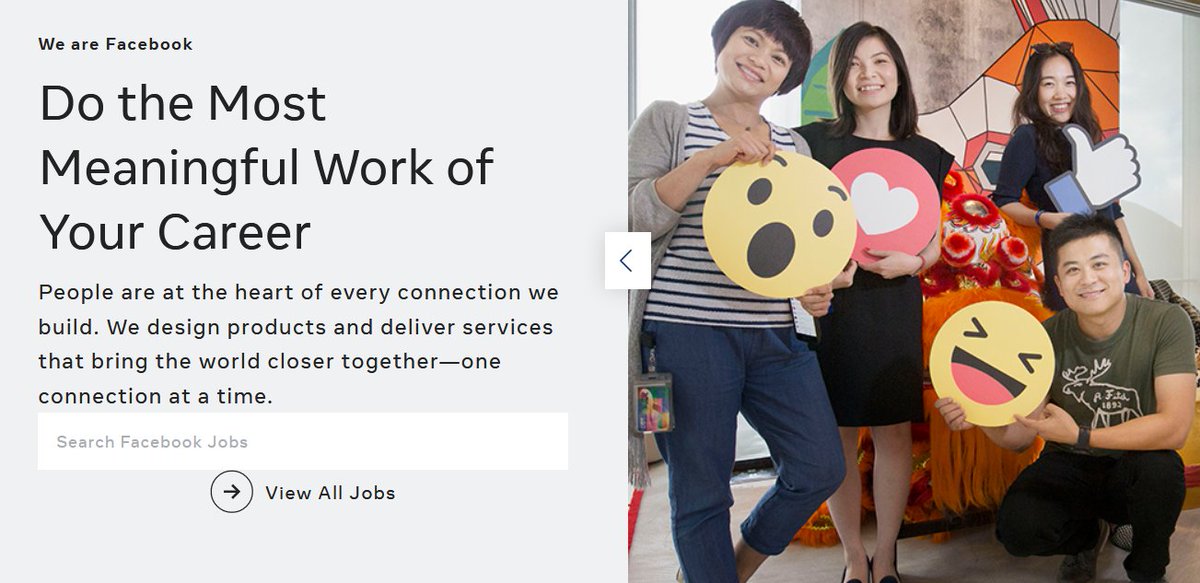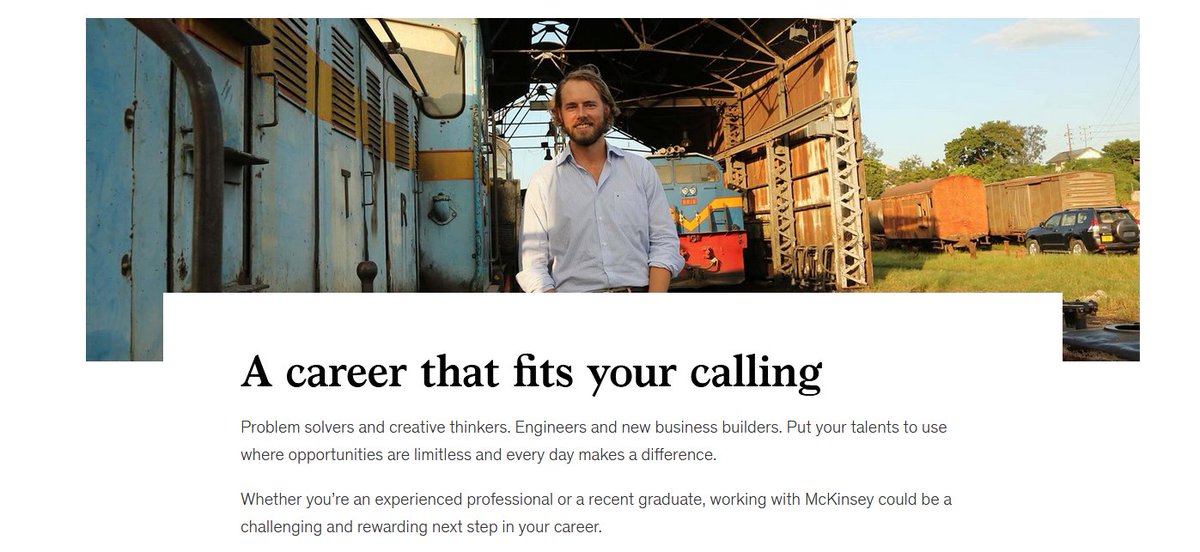
1/ A thread about some of the cool things I've learned about Taiwan, some history, and experiences from living here
1st one, "Portuguese sailors, passing Taiwan in 1544, first jotted in a ship's log the name of the island Ilha Formosa, meaning "Beautiful Island""
1st one, "Portuguese sailors, passing Taiwan in 1544, first jotted in a ship's log the name of the island Ilha Formosa, meaning "Beautiful Island""
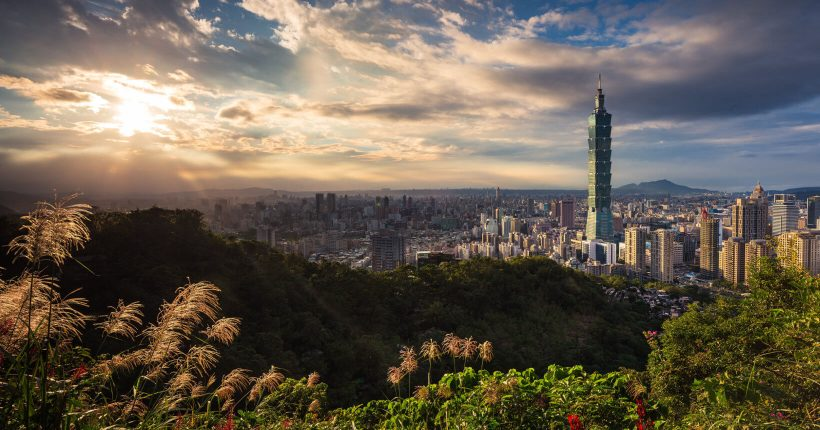
3/ Taiwan now recognizes 13 indigenous groups from the island who have roots before Chinese, Portuguese and Spanish settlers came to the island 
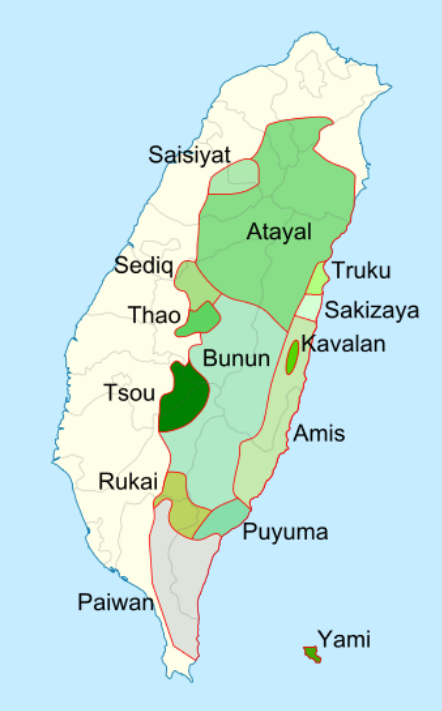
4/ The Dutch arrived in 1623 and it kicked off a period of shifting dynamic and allegiances between the Han Chinese, Dutch and Indigenous Groups.
Here is a drawing from the Dutch settlement in For Freelandia in 1624 off what is now Tainan.
Here is a drawing from the Dutch settlement in For Freelandia in 1624 off what is now Tainan.

5/ The Spanish, seeing the dutch presence as a threat to their colony in the Philippines set up residence in the north of Taiwan in modern day Keelung and eventually Tamsui, fort san domingo (seen below)
They eventually were run out of Taiwan by the Dutch by the 1650s
They eventually were run out of Taiwan by the Dutch by the 1650s
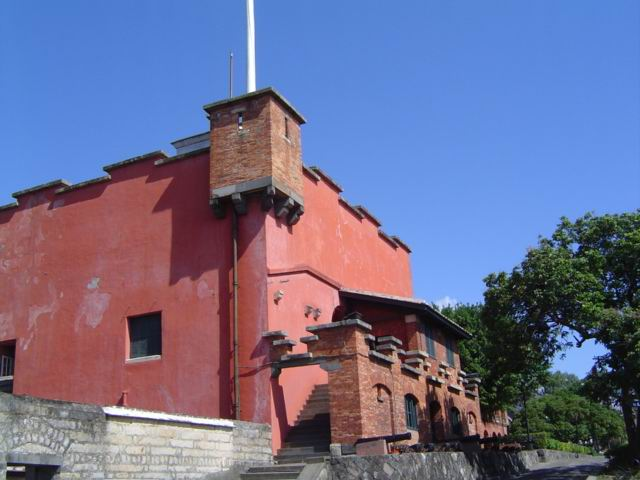
6/ In 1652 there was a Chinese rebellion against dutch that was suppressed by an alliance of dutch and indigenous people. Yet the indigenous groups were very opportunistic and eventually defected to the Chinese
7/ ...which wasn't friendly
"frontier aboriginals...surrendered and defected to the Chinese on 17 May 1661, celebrating their freedom from compulsory education under the Dutch rule by hunting down Dutch people and beheading them and trashing their Christian school textbooks"
"frontier aboriginals...surrendered and defected to the Chinese on 17 May 1661, celebrating their freedom from compulsory education under the Dutch rule by hunting down Dutch people and beheading them and trashing their Christian school textbooks"
8/ "Koxinga" a Ming Dynasty loyalist ruled Taiwan as the Kingdom of Tungning until 1683. This was during the reign of the Qing dynasty in China.
He is also know as Kaishan Shengwang, or "the Sage King who Opened up Taiwan"
There's now a temple and shrine to Koxinga in Tainan
He is also know as Kaishan Shengwang, or "the Sage King who Opened up Taiwan"
There's now a temple and shrine to Koxinga in Tainan
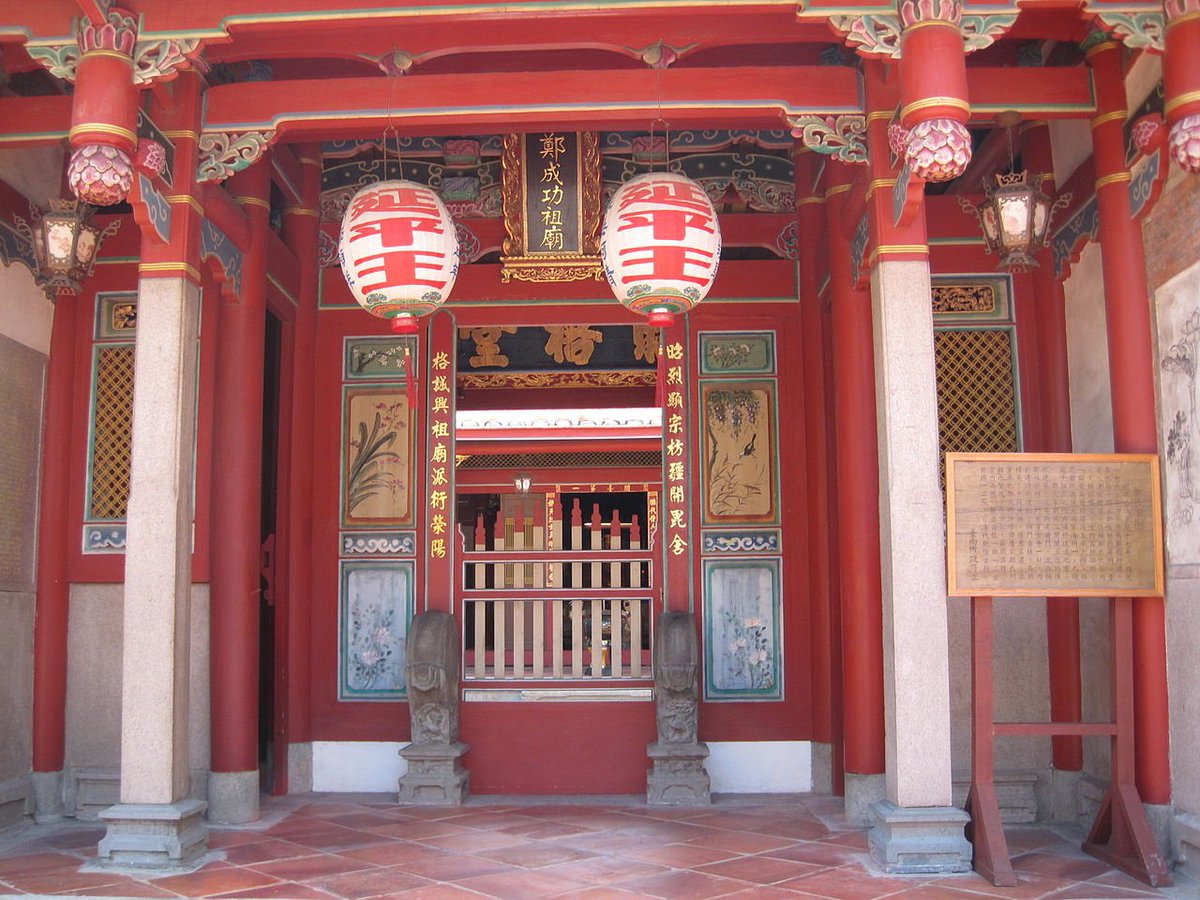
9/ The Kangxi Emperor (Qing) expressed the sentiment that Taiwan was "the size of a pellet; taking it is no gain; not taking it is no loss" (彈丸之地。得之無所加,不得無所損). His ministers called it "a ball of mud beyond the sea, adding nothing to the breadth of China"
10/ Nonetheless Taiwan was annexed as part of the Fujian province in China and ruled by the Qing from 1683 until 1895 which was not the most stable time
There is a common saying about this time "every three years an uprising; every five years a rebellion" (三年一反、五年一亂)
There is a common saying about this time "every three years an uprising; every five years a rebellion" (三年一反、五年一亂)
11/ In 1894 China and Japan went to war. In 1895 Formosa was given to Japan in the Treaty of Shimonosek. In response, people in Taiwan established the "Republic of Formosa" in 1895, which lasted for five months and received no international recognition 

12/ Despite this the Japanese still took over command of Taiwan in 1895 and ruled the island until the end of World War II. This is a painting of the Japanese entering Taipei. 
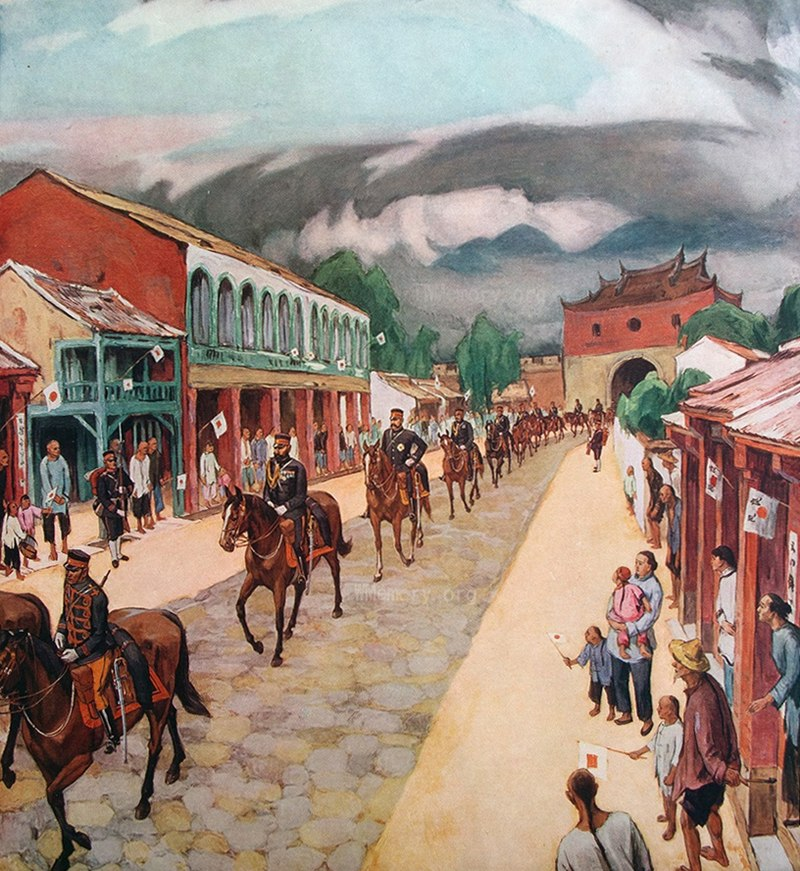
13/ Taiwanese were seen as second or third-class citizens and the Japanese surpressed uprisings from Chinese descendants and indigenous.
In 1935 they started a formal assimilation project and Taiwanese culture and religion were outlawed and people were given Japanese surnames.
In 1935 they started a formal assimilation project and Taiwanese culture and religion were outlawed and people were given Japanese surnames.
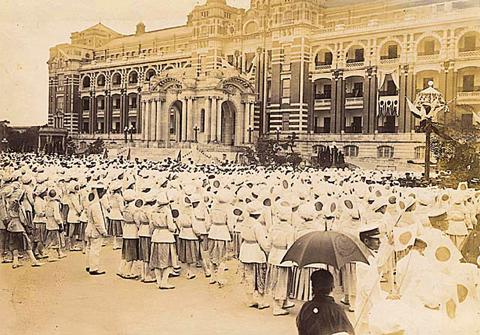
14/ A great book to understand this time period is a book "Orphan of Asia" about a young Taiwanese born in this time period but struggling under the constraints of Japanese rule. He then travels to China and back to Taiwan but never really feels at "home" 

15/ At the end of WW II, the Japanese surrendered Taiwan and 90% of the Japanese retreated back to Japan. An amazing recent movie captures the weirdness of Taiwanese born Japanese returning to Taiwan years later and speaking to locals in perfect japanese 

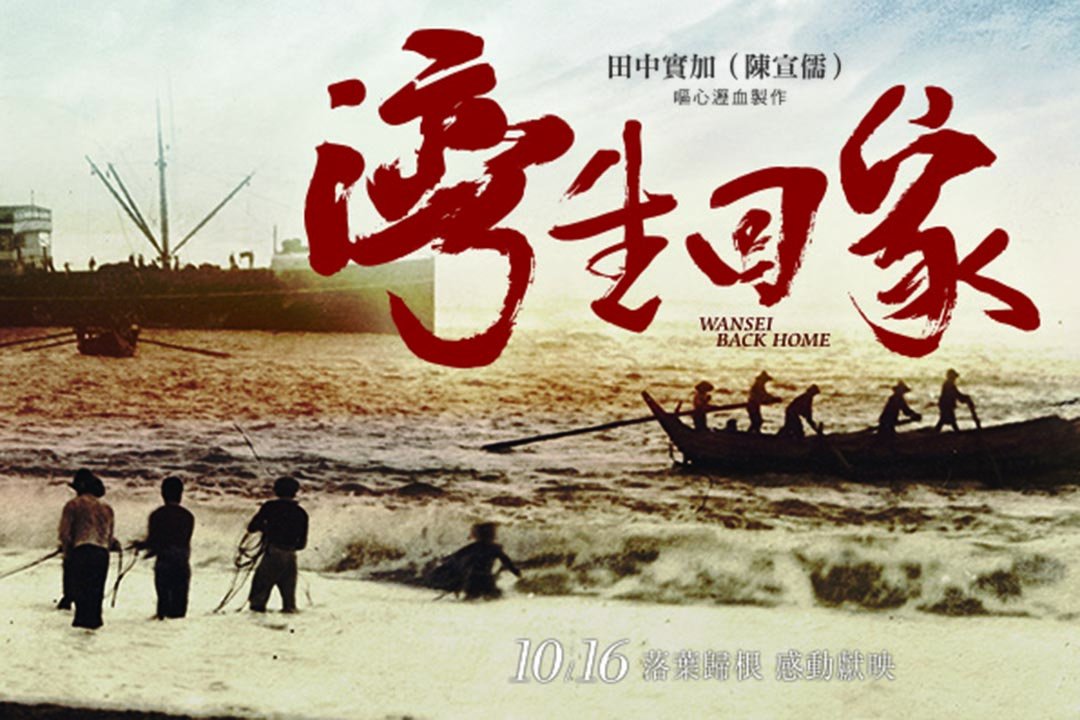
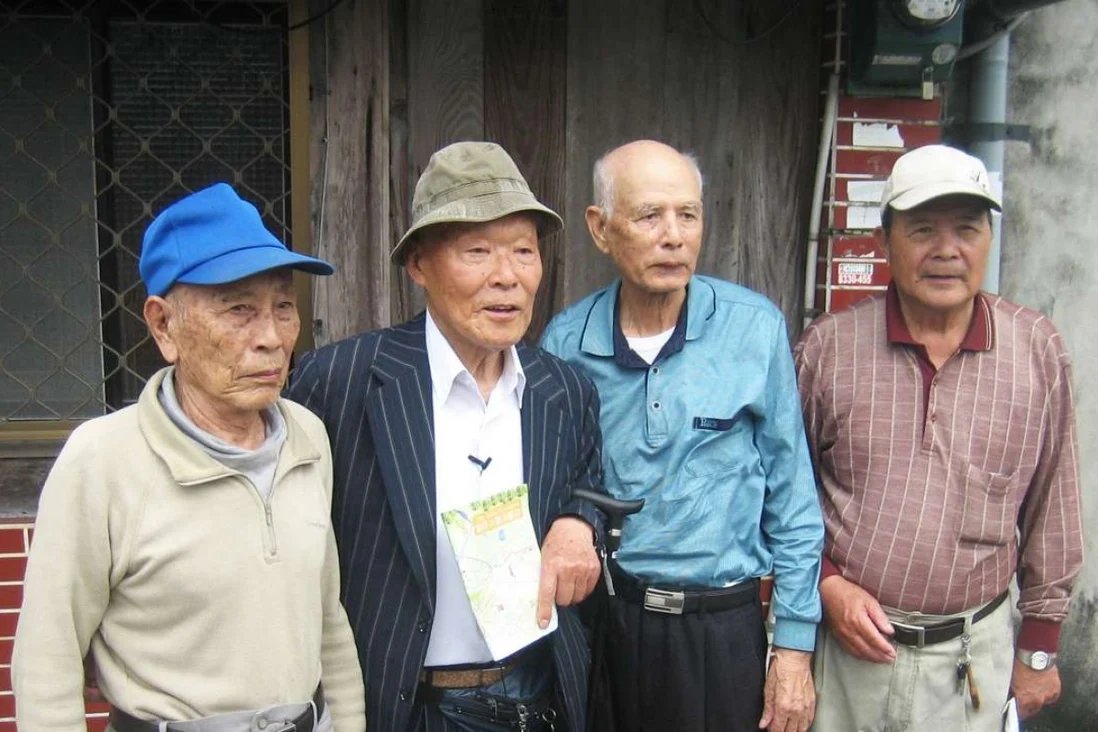
16/ The Japanese surrendered Taiwan to Chiang Kai-shek, the head of the chinese nationalists, aided by the Allies.
Chiang Kai-shek had formed an alliance with Mao and the Communists in 1937 and had been aligned against Japan. Here they are celebrating victory in 1945.
Chiang Kai-shek had formed an alliance with Mao and the Communists in 1937 and had been aligned against Japan. Here they are celebrating victory in 1945.
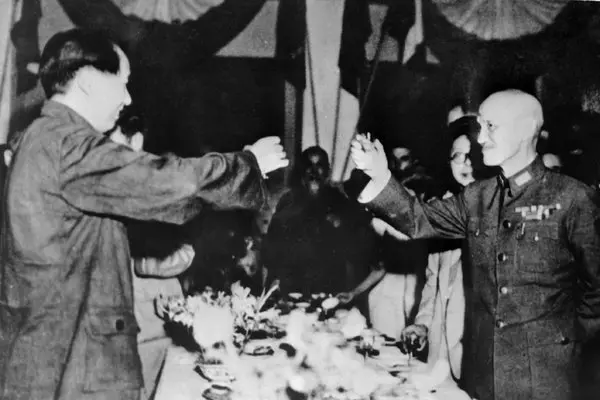
17/ This alliance fractured at the end of WWII and civil war broke out in China. As the communists gained control of China, By 1949 up to 2 million troops and refugees fled to Taiwan.
They were very much outsiders culturally but insiders because of Chiang Kai Shek's rule
They were very much outsiders culturally but insiders because of Chiang Kai Shek's rule
18/ In these first few years after the war there was a lot of chaos and also resentment towards the Chiang Kai Shek's Kuomintang (KMT) party and the "Waishengren" or "mainlanders" that was ruling Taiwan.
Here is a newspaper from the US in 1947
Here is a newspaper from the US in 1947
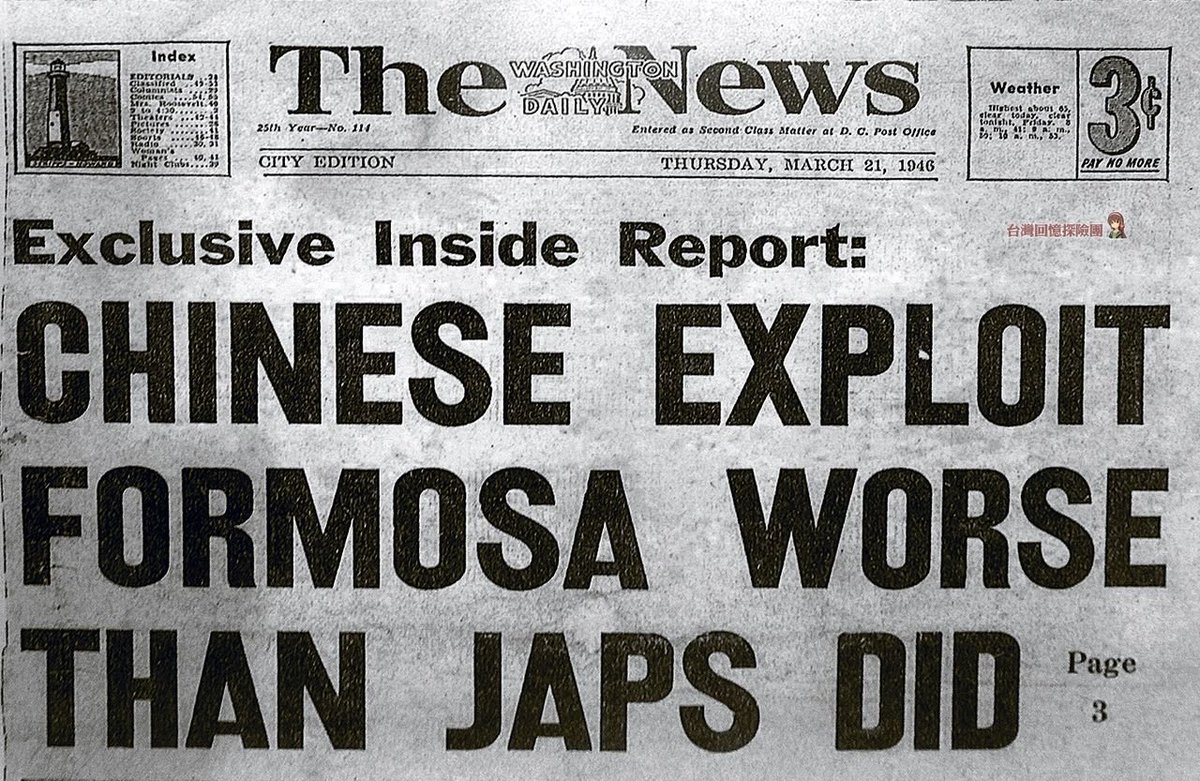
19/ The KMT party put down many uprisings and declared Martial Law in 1947 after the 2-28 incident on February 28th where the KMT killed tens of thousands of people 
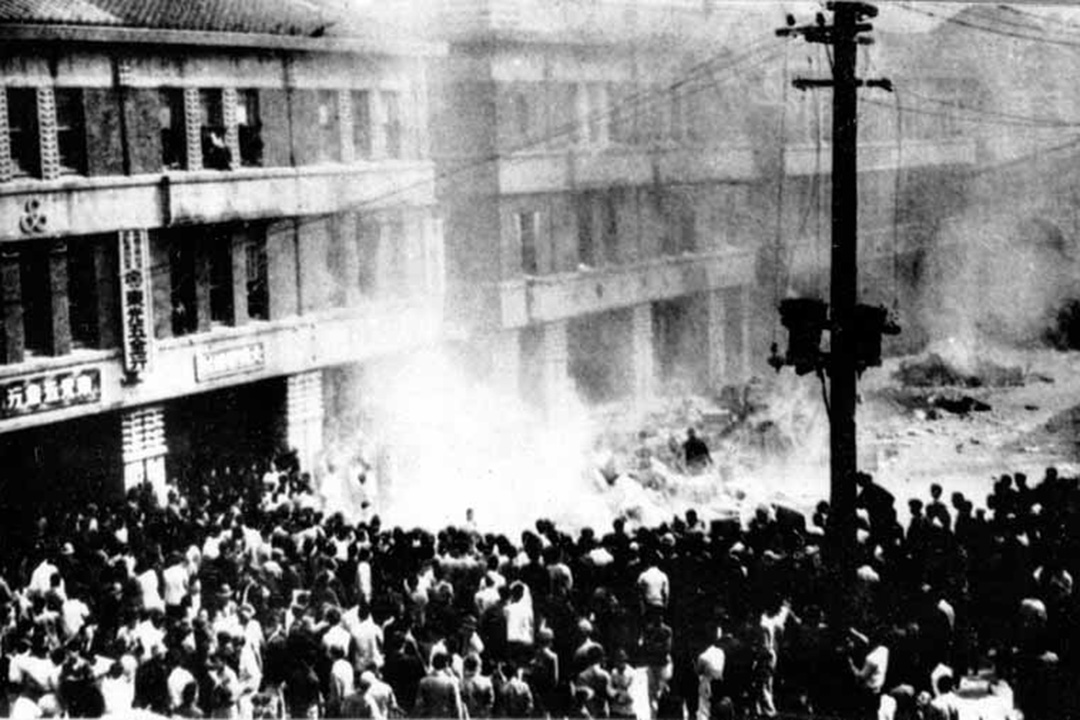
20/ Althought they retreated to Taiwan, the KMT claimed all of China as "The Republic of China" and the constitution of modern day Taiwan is the same one signed in Nanjing, China in 1947.
It also still says the Capital of Taiwan is Nanjing
It also still says the Capital of Taiwan is Nanjing
21/ The KMT imprisoned mostly Taiwan's intellectual and social elite out of fear that they might resist KMT rule or sympathize with communism.
They also claimed that the Repulic of China was the true Taiwan
They also claimed that the Repulic of China was the true Taiwan
22/ Because of all this Today Taiwan is much more diverse than people imagine
"native taiwanese" - Hoklo/Hakka - 85% (various waves of immigrants from China pre-1895, including some raised under Japanization)
"mainlanders" - Weishengren - 10-13%
indigenous tribes - 2%
"native taiwanese" - Hoklo/Hakka - 85% (various waves of immigrants from China pre-1895, including some raised under Japanization)
"mainlanders" - Weishengren - 10-13%
indigenous tribes - 2%
23/ This makes modern Taiwan confusing. My wife's grandfather was a mainlander refugee. He was separated from his family in China until the end of his life and ended up marrying a local Taiwanese woman (as did many others).
So current generations are not from any one "group"
So current generations are not from any one "group"
24/ The Republic of China (the island of taiwan) was ruled as a one party military dictatorship under martial law until 1987. Until 1979 it was also seen internationally and at the UN as the "real china" This is when a weird shift happened for Taiwan that remains until today
25/ As The People's Republic of China gained power, Mao died and Deng Xiaoping aligned with the US and Europe against the soviets, they earned a seat at the UN table
Jimmy Carter formally re-established ties with China
Jimmy Carter formally re-established ties with China
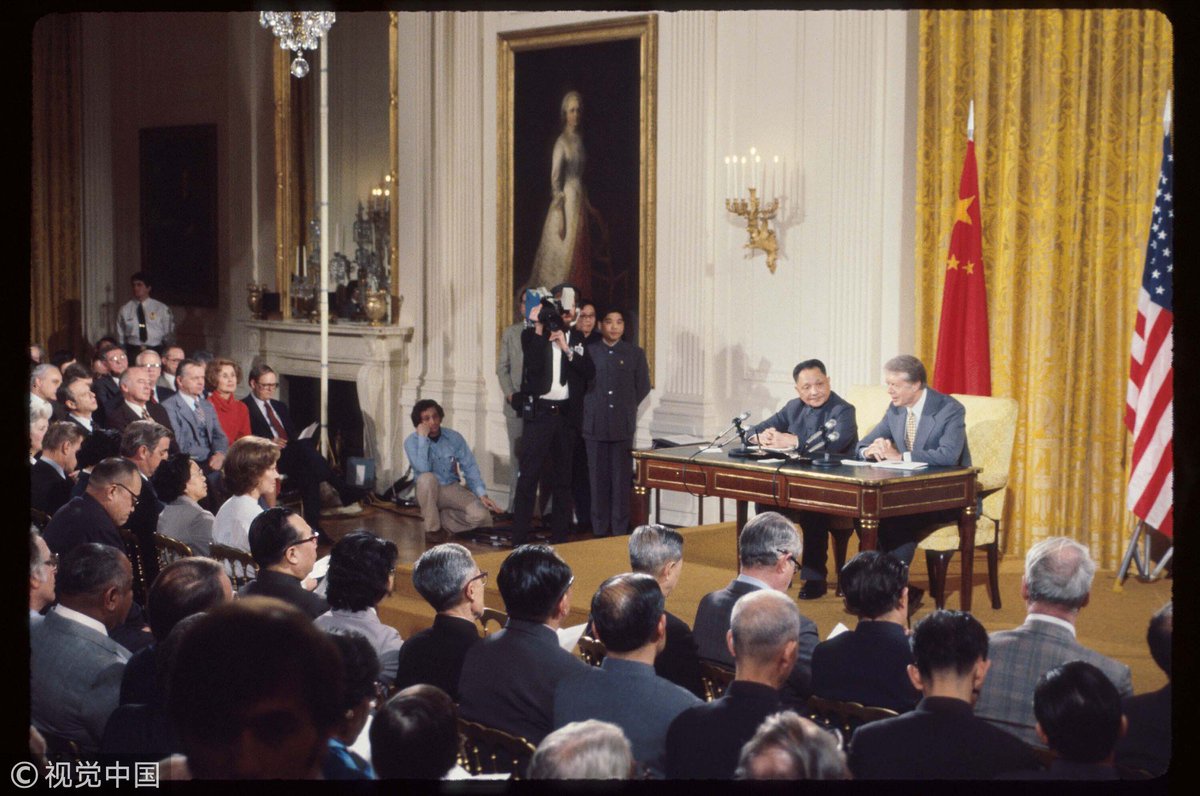
26/ This immediately meant that the Republic of China was not recognized as a nation and since this time has not been recognized as a country by global powers. The US did pass the "Taiwan Relations Act" which essentially guaranteed Taiwans status as a country except in name
27/ To this day only Guatemala, Honduras, Holy See. Haiti
Paraguay, Nicaragua, Eswatini, Tuvalu, Nauru, Saint Vincent and the Grenadines, Saint Kitts and Nevis, Saint Lucia, Belize, The Marshall Islands and Palau recognize the country
Paraguay, Nicaragua, Eswatini, Tuvalu, Nauru, Saint Vincent and the Grenadines, Saint Kitts and Nevis, Saint Lucia, Belize, The Marshall Islands and Palau recognize the country
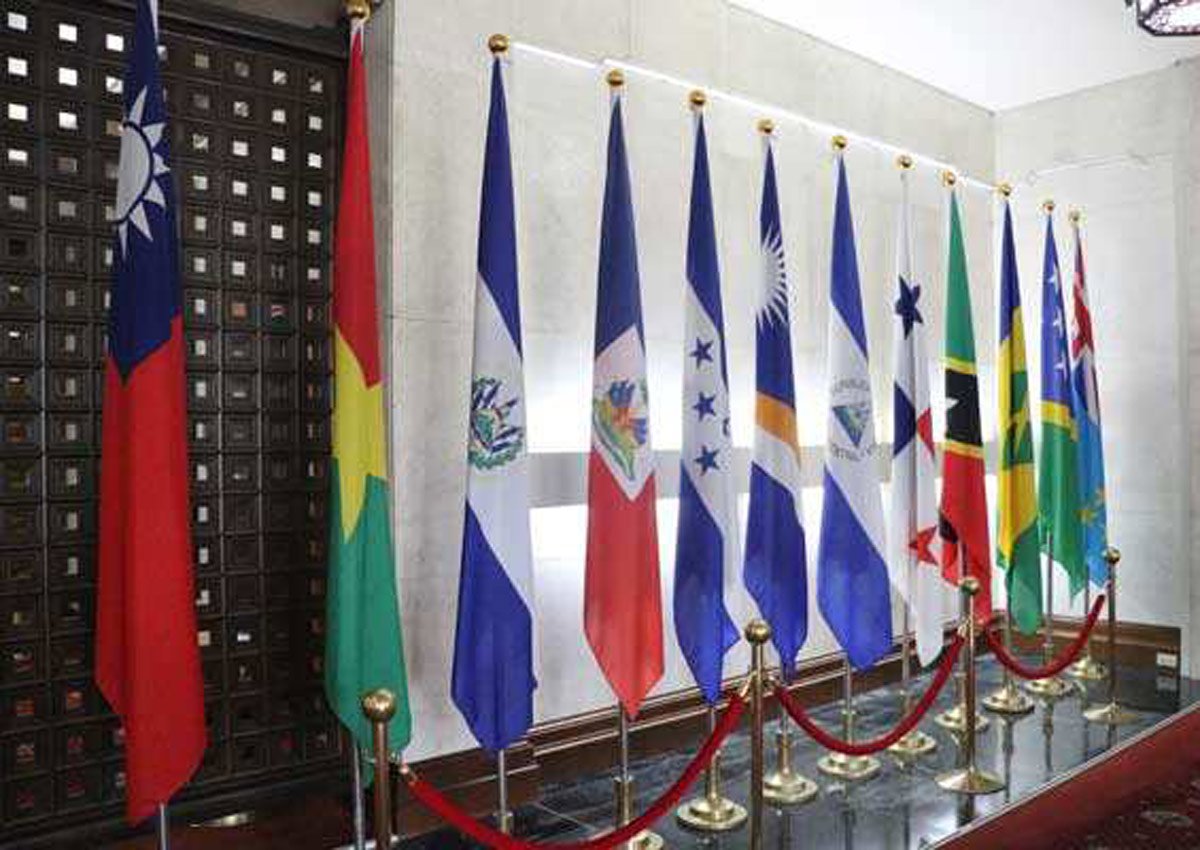
28/ In this time, Taiwan was also going through a transformation. Chiang Kai Shek had died in 1975 and his son Chiang Ching-kuo took over. He abandoned his fathers goal of reuniting or taking over China 

29/ In 1970 Peter Huang a Taiwanese PhD student at Cornell tried to assassinate Kuo at the plaza hotel in NYC, inspired by the social movements in the US. He was never charged, fled to Eruope, returned to Taiwan and now is seen as a humans right champion
taipeitimes.com/News/feat/arch…
taipeitimes.com/News/feat/arch…
30/ Before Kuo's death he ended Martial law in 1987 and allowed the emergence of opposition political parties, including the Democratic Progressive Party which is now in power in Taiwan. During this time Taiwan was also one of the fastest growing countries in the world 

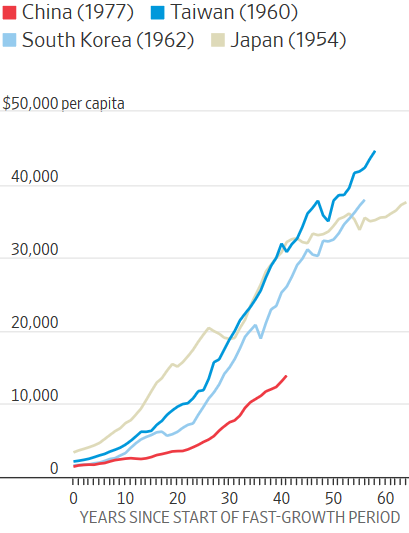
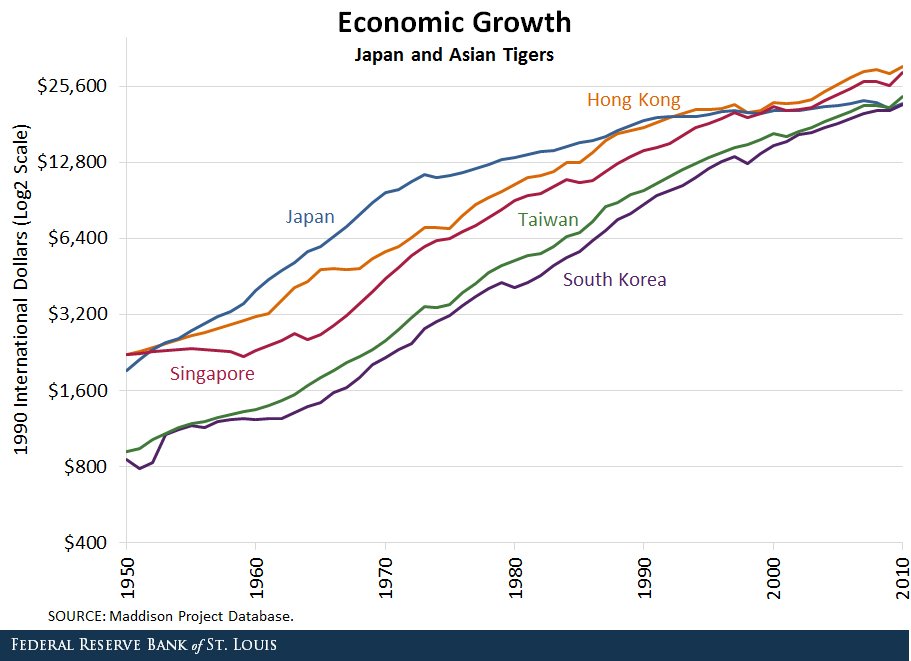
31/ The first democratic elections happened in 1996. Taiwan has been seen as one of the only countries to shift to democracy without a major crisis or major violence. Some credit this to the fact that the KMT always allowed a range of local politics to exist during its reign.
32/ In 2000 the first DPP party leader was elected president. The KMT won in 2004 and 2008 and 2012 when the DPP returned to power in the 2016 election and then again in 2020. 
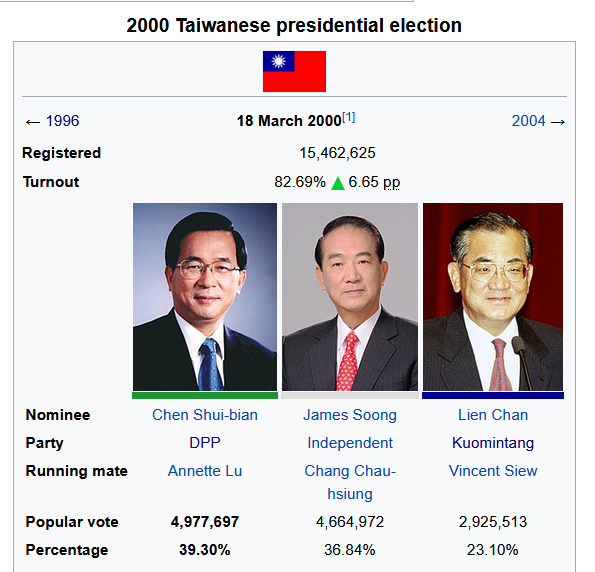
33/ Fun fact time: People are often surprised they can't find a trash can when they visit. This is by design. @eugenewei writes about this and how this combined with trash trucks that play fur elise made people more responsible for their trash
eugenewei.com/blog/2018/5/11…
eugenewei.com/blog/2018/5/11…
34/ The current President Tsai Ing-Wen who studied at Cornell and has a PhD from the London School of Economics is famously single but has two cats which often find themselves in many governmental images 

35/ Taiwan prevented Covid from spreading in the country. They had kept their command center funded from the original SARs epidemic and activated it as well as screening of passengers from Wuhan in late 2019.
mei.edu/publications/t…
mei.edu/publications/t…
37/ When the country democratized it did not know what to do with thousands of statues of the former leader Chiang Kai Shek. Starting in the 90s and then increasingly through the 2000s these were moved to a statue park where people can go visit thousands of the same statue 



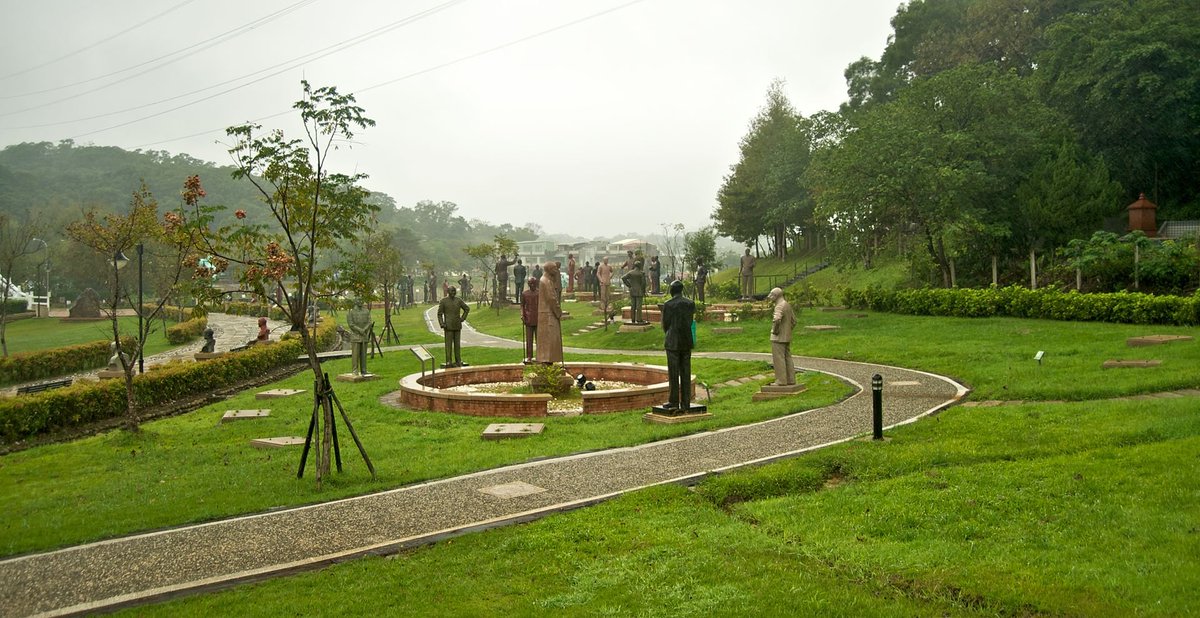
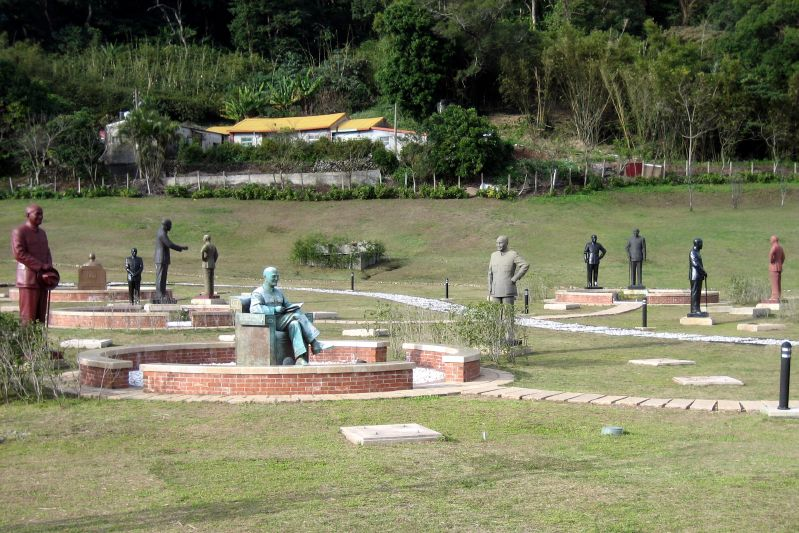
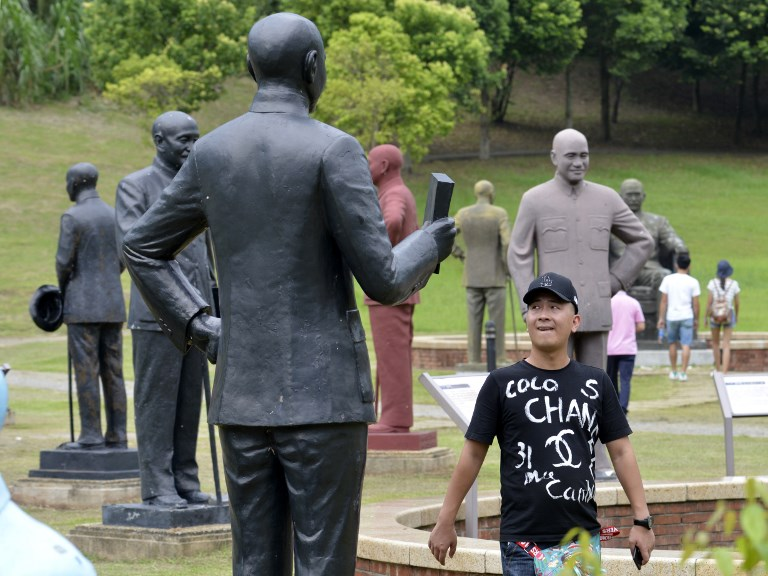

38/ With all receipts you have a QR code that enters you into a lottery. There are drawings every 3 months where you can win money. I've won between $5-20 US a few times. 

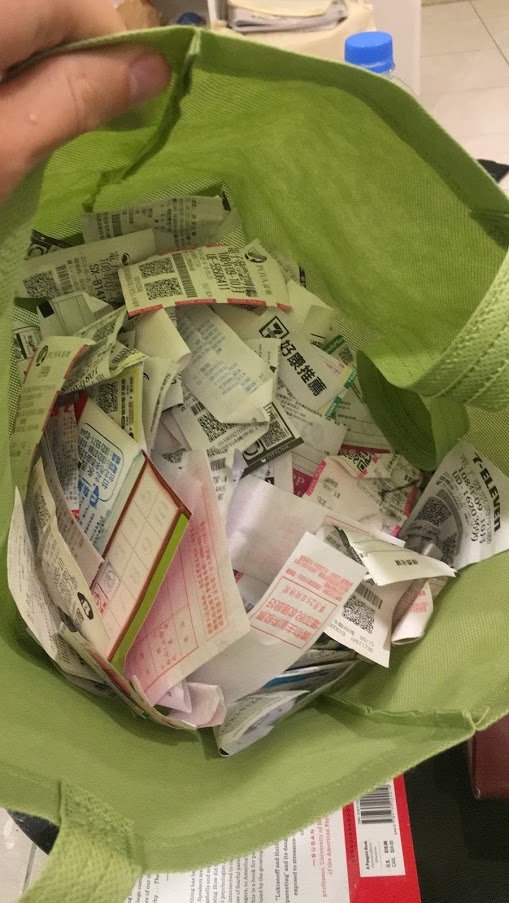
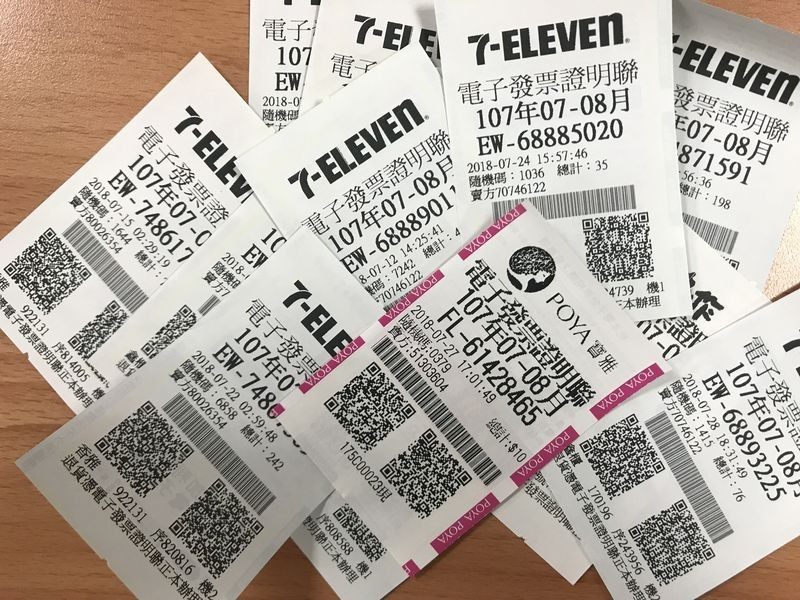
39/ The National Palace Museum is one of the largest collections of chinese history and artifacts in the world. Many of which were smuggled out of China during the civil war 
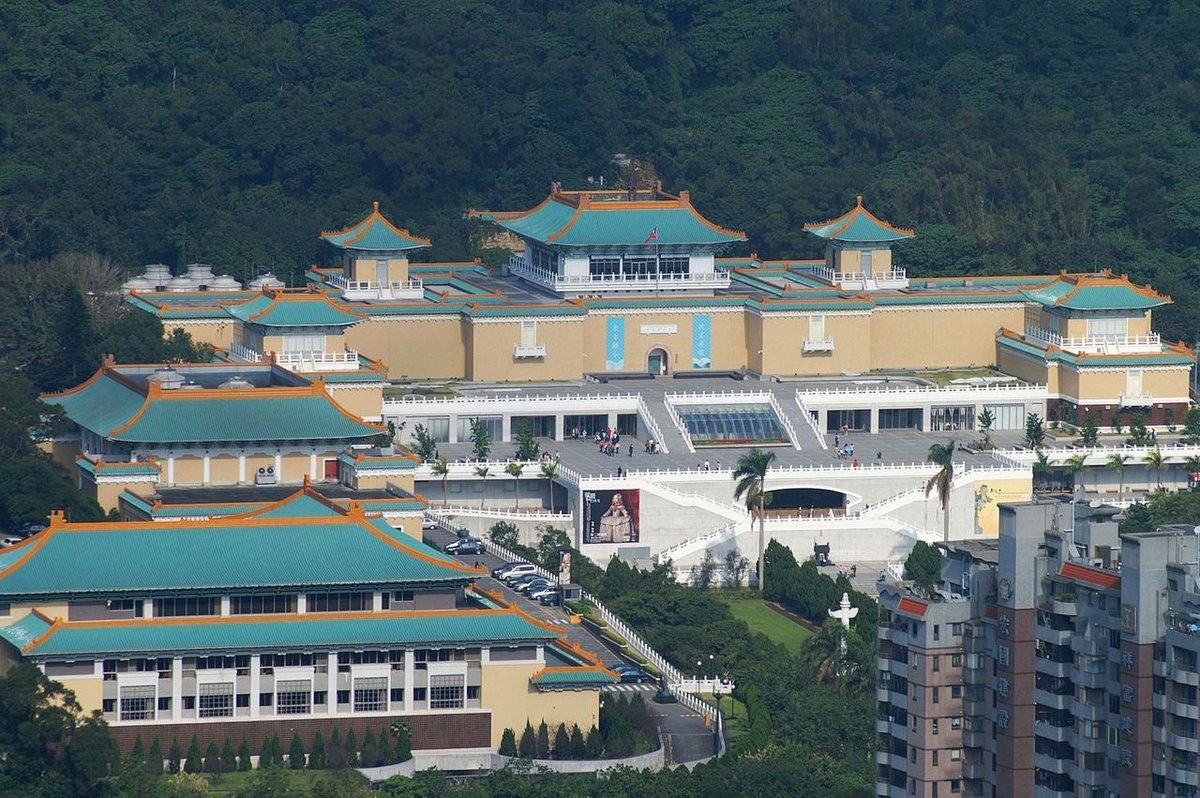
40/ You can see Japanese influences still in a lot of places. Beitou, a small village outside of Taipei, is a place with natural hot springs. You can still visit the old Japanese bath house and still go in the outdoor natural hot springs 


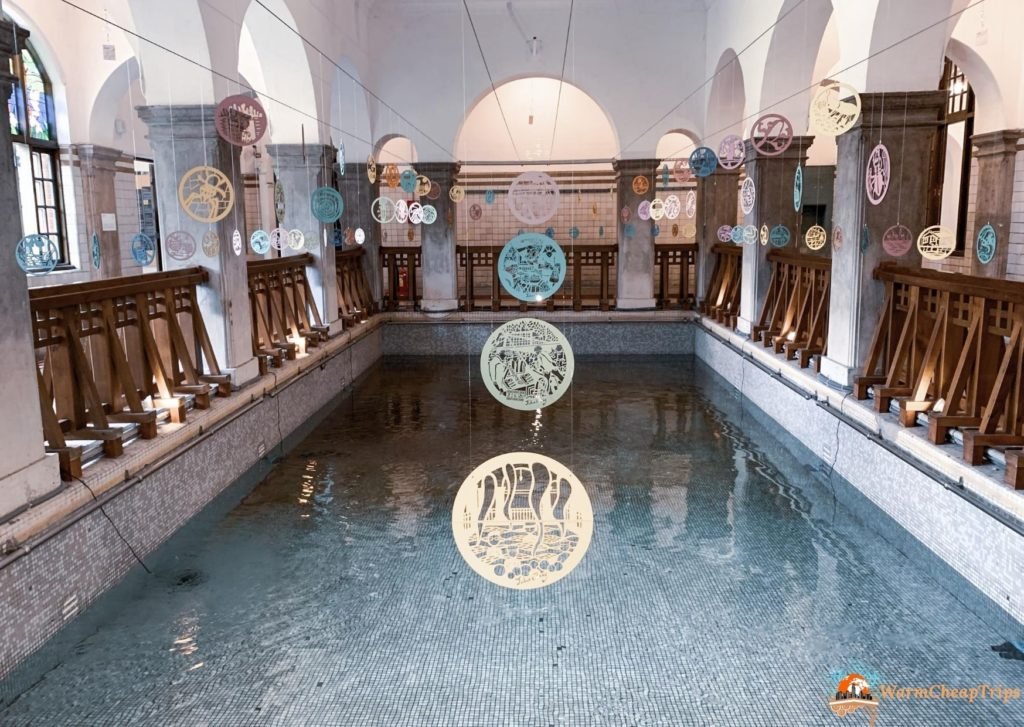

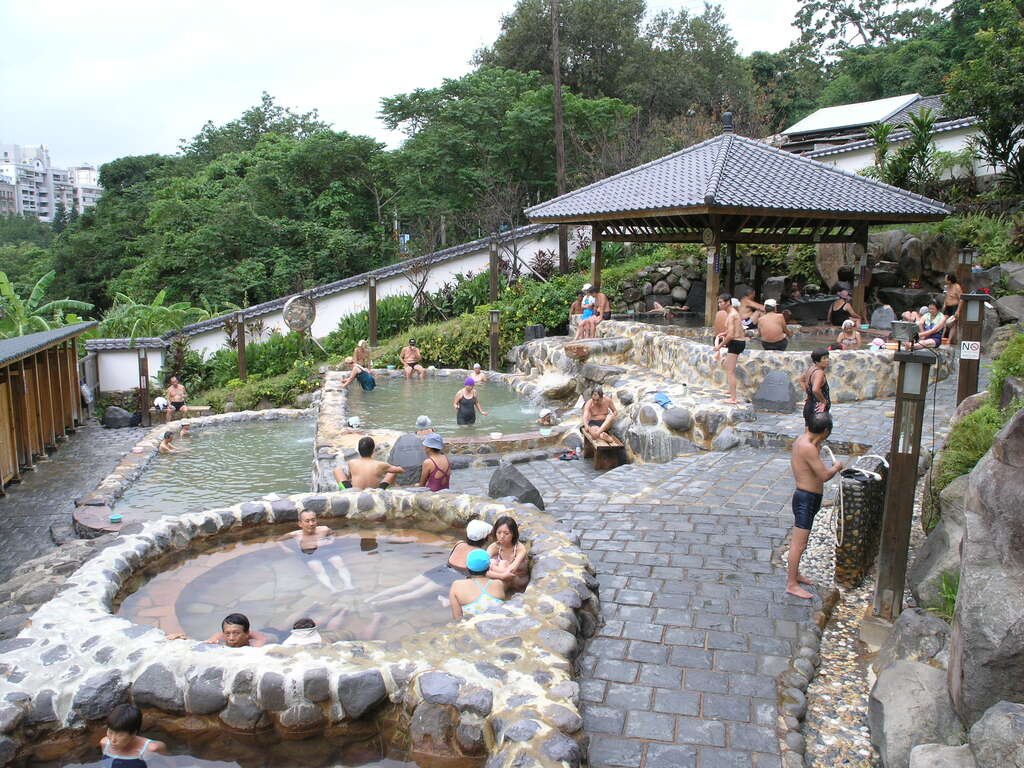
41/ A great book in English is Green Island by Shawna Yang. It follows a woman who grows up in Taichung from the 1940s on and and tracks many of the true events, including how KMT spies would often follow taiwanese people in the US until the 1980s
amazon.com/Green-Island-S…
amazon.com/Green-Island-S…
42/ Unlike mainand china, Taiwan still uses "Traditional Chinese Characters" You need need to know about 1,500 to 2,000 characters to be somewhat fluent but need to know at least 5,000 or more to be seen as natively fluent. 
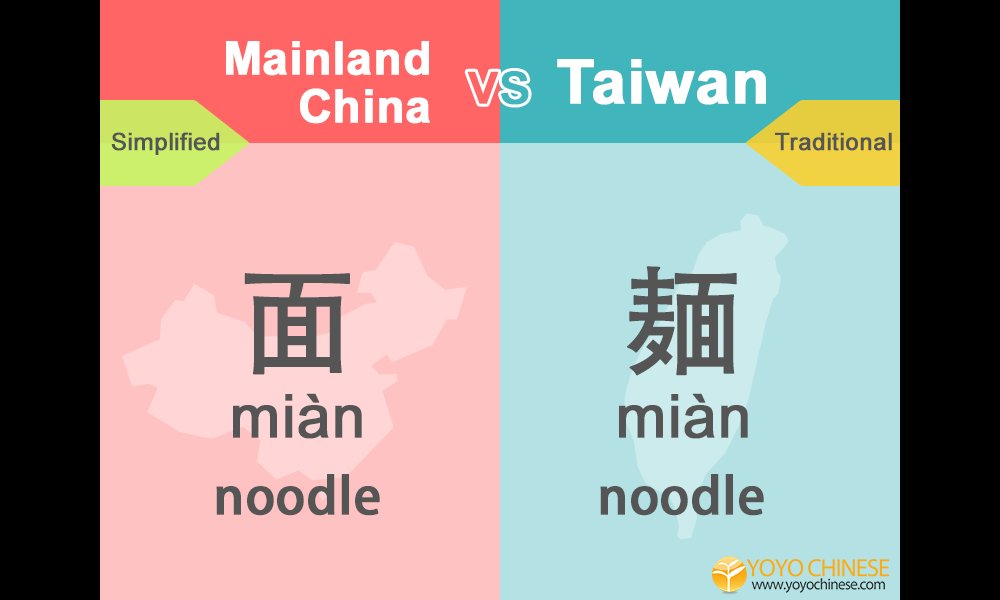
43/ Yet, the reason Mandarin is common now is because of the KMT influence after WWII. Officially, they swapped Japanese with Mandarin. Yet most of the locals spoke Taiwanese and though it has fallen off, more than 80% of people speak Taiwanese Hokkien at home.
44/ Taiwanese identity ("I am Taiwanese") has gotten a lot stronger in the last 20 years and not until 2009 did a majority of people identify as only taiwanese instead of either Chinese or chinese and taiwanese 
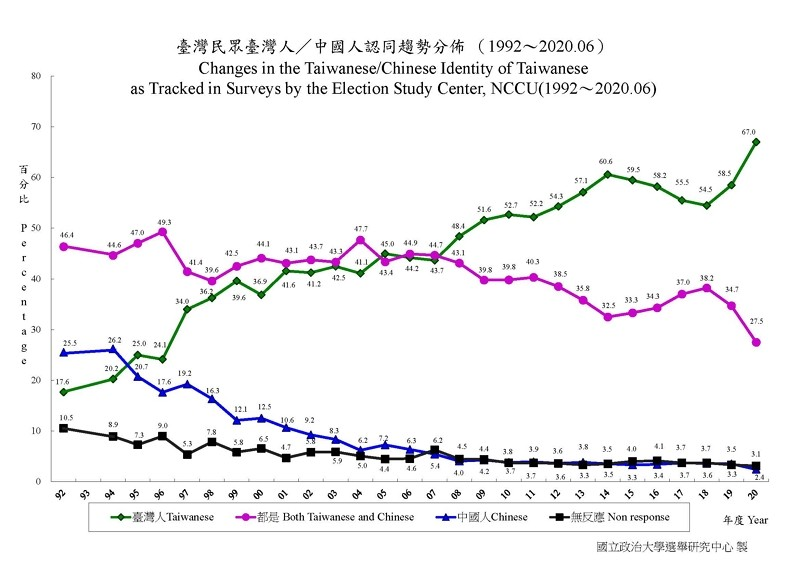
45/ Taiwan is home to one of the most politically important companies, TSMC, which Morris Chang, originally from china, founded in Taiwan because he couldnt get promoted at Texas Instruments and Taiwan invited him to come there instead.
From @SahilBloom
sahilbloom.substack.com/p/the-amazing-…
From @SahilBloom
sahilbloom.substack.com/p/the-amazing-…
46/ A lot has been written about the strategic importance of TSCM which @stratechery says "is the best chipmaker in the world, no matter what vector of performance you care about"
Every powerful country in the world wants access to TSMC's chips
stratechery.com/2020/chips-and…
Every powerful country in the world wants access to TSMC's chips
stratechery.com/2020/chips-and…
47/ A massive thread with Taiwan would not be complete without featuring the famous Hello Kitty plane, EVA. EVA and China Airlines are the two Taiwanese airlines, both fantastic in my experience. 
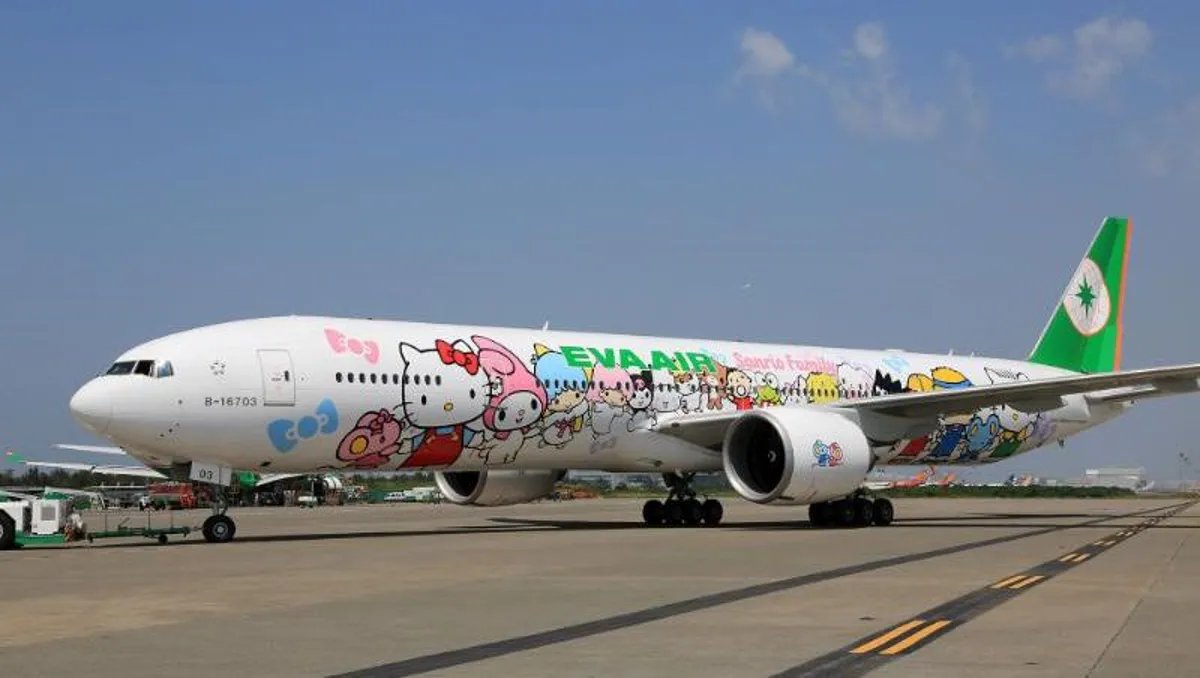
48/ Some people think Jiufen, a mountainside village north of Taipei, was the inspiration for the village in Spirited Away.
Jiu-Fen means "nine portions" and the name comes from the village wanting nine portions every time there was a new shipment in port


Jiu-Fen means "nine portions" and the name comes from the village wanting nine portions every time there was a new shipment in port
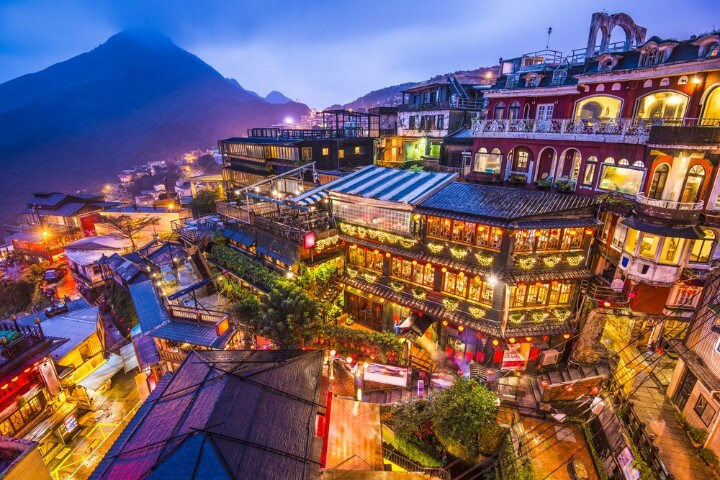
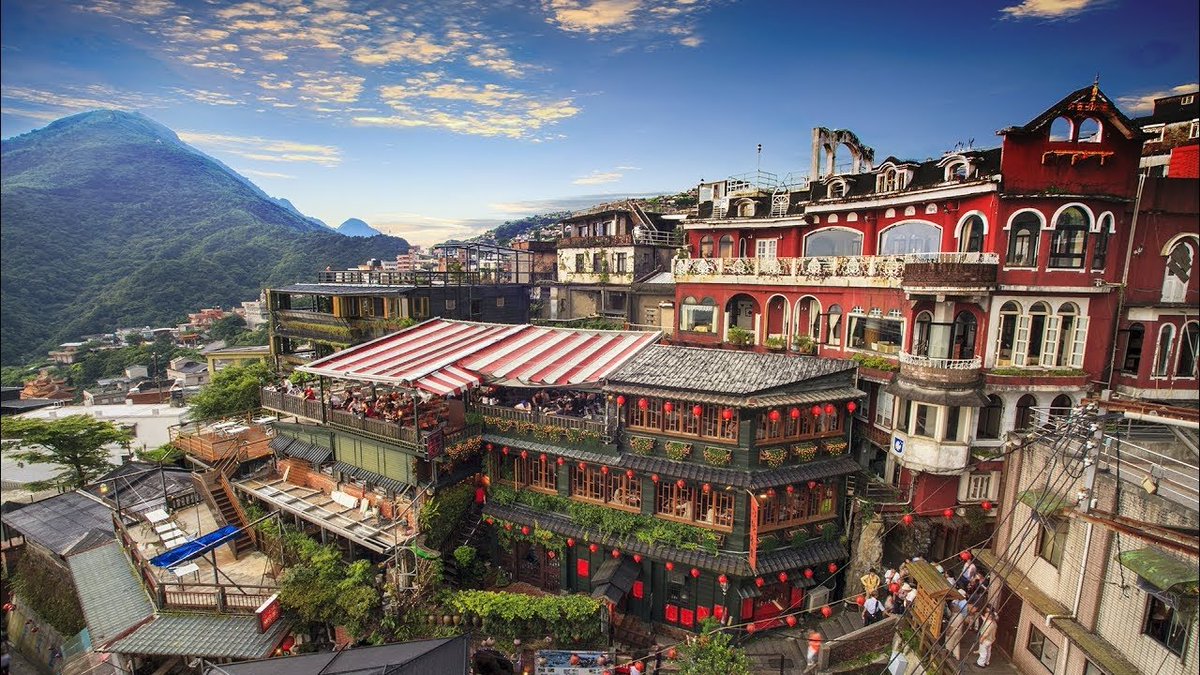
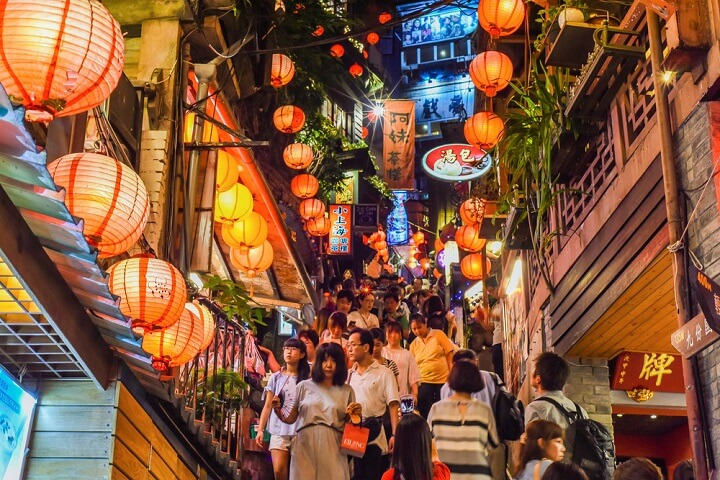
49/ The night markets are awesome in Taiwan and you will find them big or small almost anywhere you are in the country. Here are some of my favorite from Keelung, Taipei and Taichung 


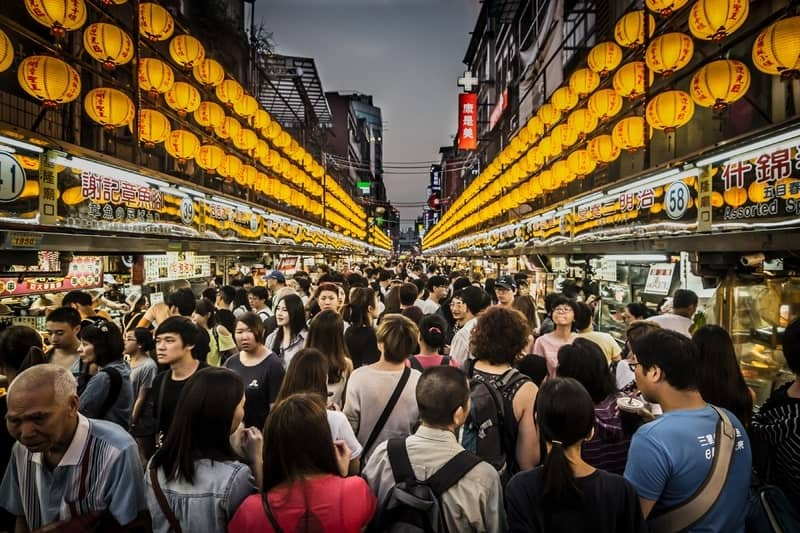
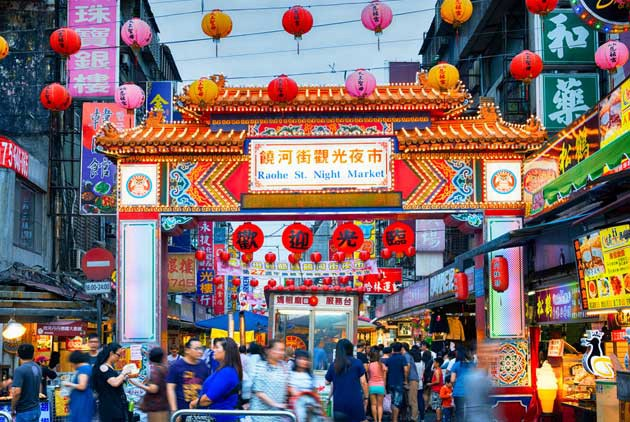
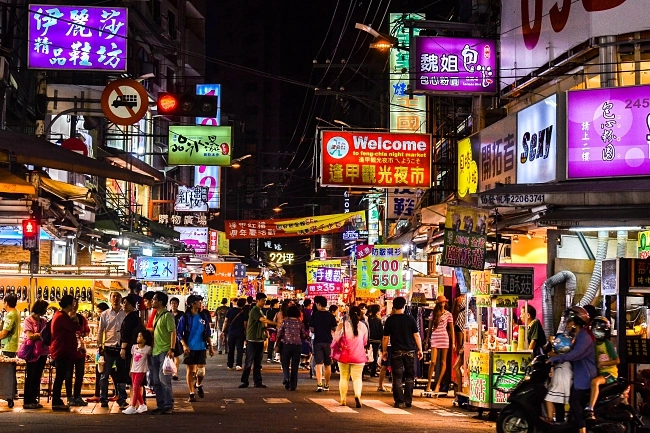
50/ My favorite place I've been by far was Lanyu - Orchid island, a small indigenous island off the southeast coast. Relatively unpopulated and they restrict tourist traffic its more stunning than the pictures 


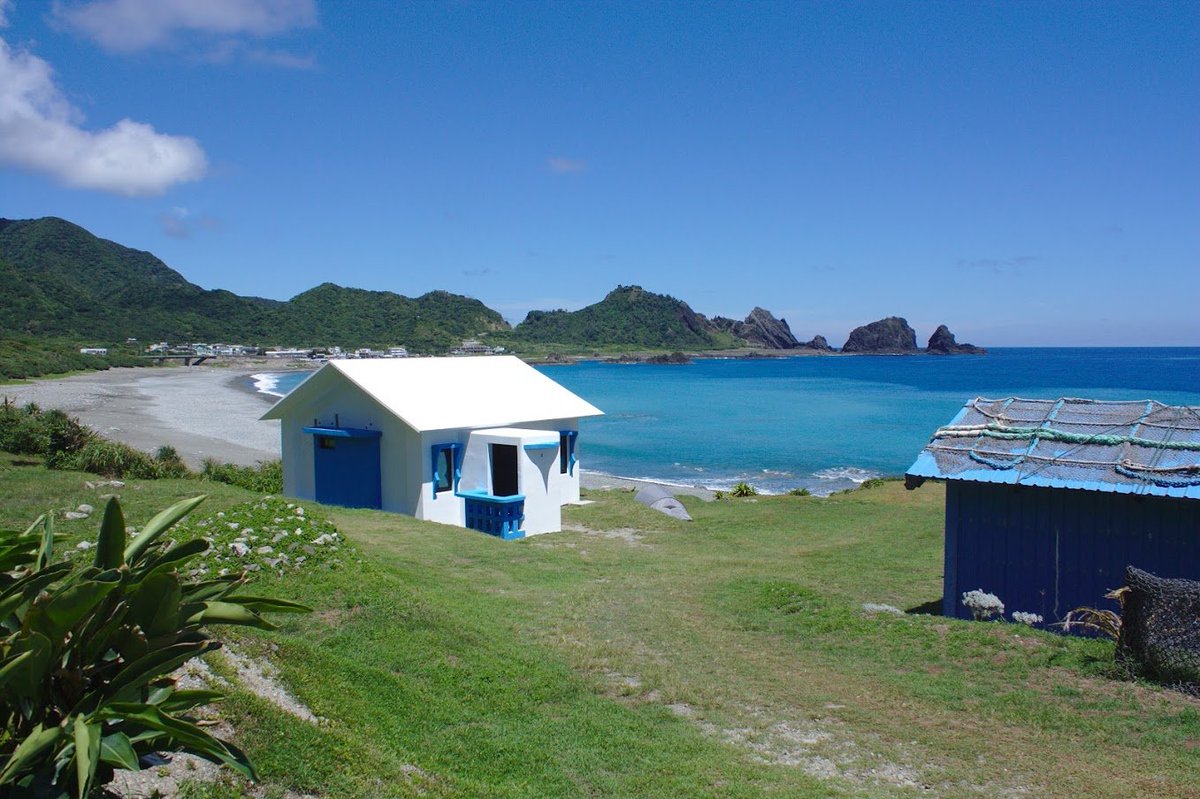
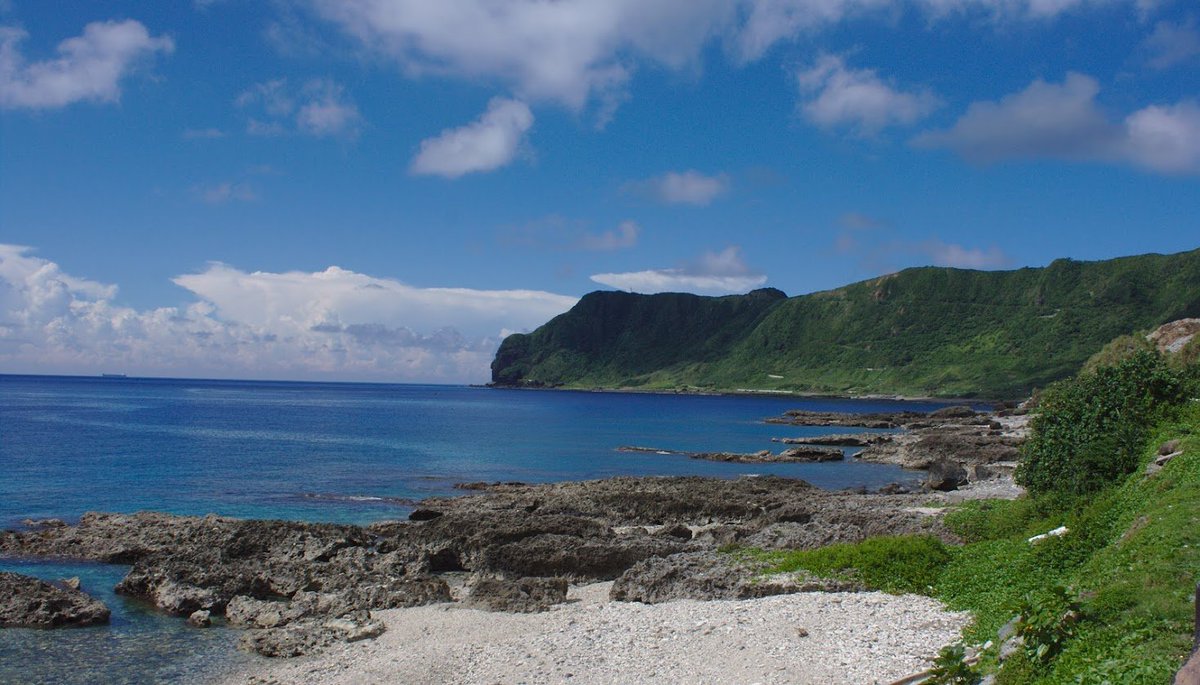
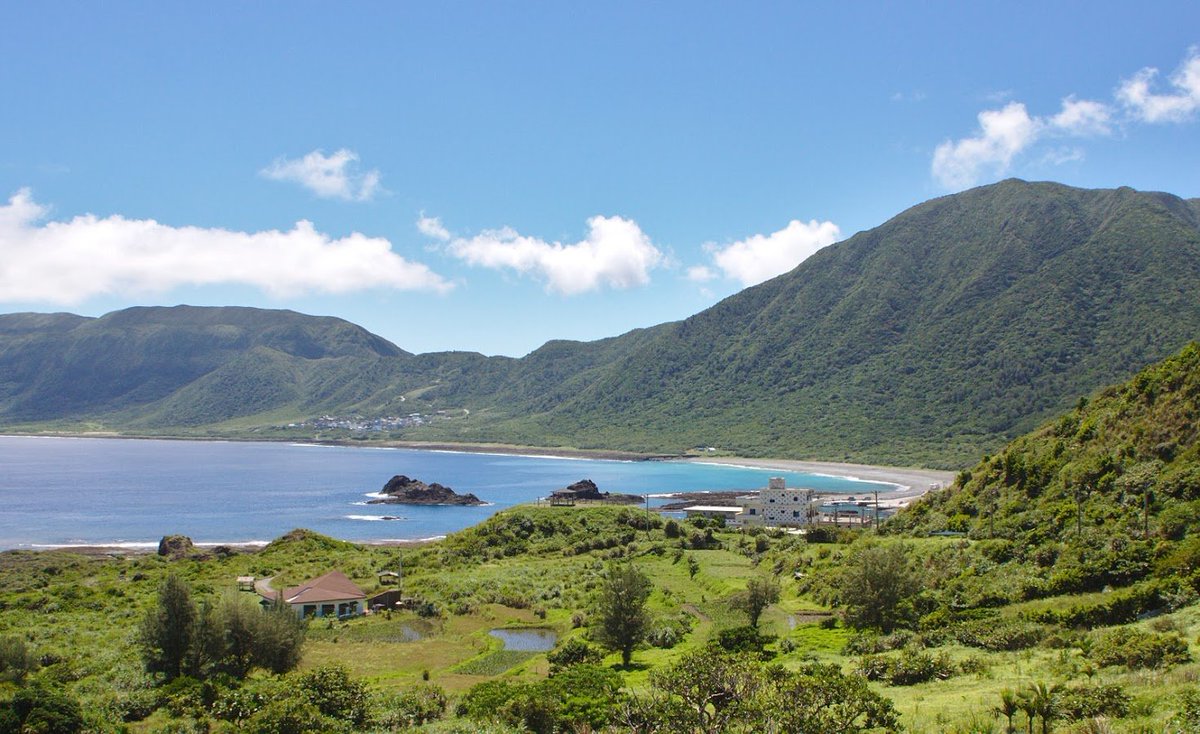
@Noahpinion you might like this
51/ If you want to get a sense of modern day Taiwan and some of the interesting experiments in governance and government this interview with @audreyt and @tylercowen is a must listen conversationswithtyler.com/episodes/audre…
52/ Another great English speaking podcast on Taiwan is the Taiwan Take by @ghostislandme as well.
podcasts.apple.com/us/podcast/the…
podcasts.apple.com/us/podcast/the…
@iingwen can i get a share?
54/ A few corrections to note
1. 16 indigenous tribes now
2. DPP won presidency in 2004
3. National elections for legislature in 1992
4. Portuguese naming it "ilha formosa" was in 1554
5. Chiang not Kuo in 29/ and 30/
6. ROC swap with PRC at UN was 1971 not 79
1. 16 indigenous tribes now
2. DPP won presidency in 2004
3. National elections for legislature in 1992
4. Portuguese naming it "ilha formosa" was in 1554
5. Chiang not Kuo in 29/ and 30/
6. ROC swap with PRC at UN was 1971 not 79
• • •
Missing some Tweet in this thread? You can try to
force a refresh

